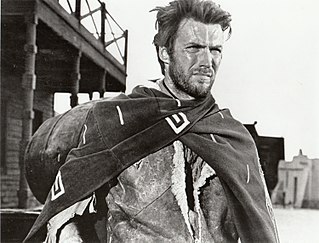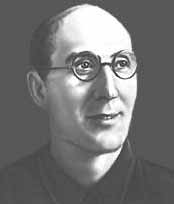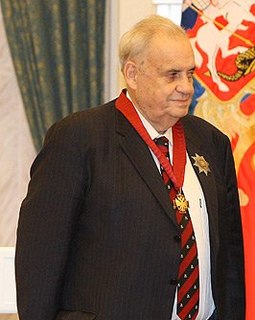
The cinema of the Soviet Union includes films produced by the constituent republics of the Soviet Union reflecting elements of their pre-Soviet culture, language and history, albeit they were all regulated by the central government in Moscow. Most prolific in their republican films, after the Russian Soviet Federative Socialist Republic, were Armenia, Azerbaijan, Georgia, Ukraine, and, to a lesser degree, Lithuania, Belarus and Moldavia. At the same time, the nation's film industry, which was fully nationalized throughout most of the country's history, was guided by philosophies and laws propounded by the monopoly Soviet Communist Party which introduced a new view on the cinema, socialist realism, which was different from the one before or after the existence of the Soviet Union.

A film genre is a stylistic or thematic category for motion pictures based on similarities either in the narrative elements, aesthetic approach, or the emotional response to the film.

Sergei Mikhailovich Eisenstein was a Soviet film director, screenwriter, film editor and film theorist. He was a pioneer in the theory and practice of montage. He is noted in particular for his silent films Strike (1925), Battleship Potemkin (1925) and October (1928), as well as the historical epics Alexander Nevsky (1938) and Ivan the Terrible. In its 2012 decennial poll, the magazine Sight & Sound named his Battleship Potemkin the 11th greatest film of all time.

Boris Akunin is the pen name of Grigori Chkhartishvili, a Russian-Georgian writer. He is best known as writer of detective and historical fiction. He is also an essayist and literary translator. Grigory Chkhartishvili has also written under pen names Anatoly Brusnikin, Anna Borisova, and Akunin-Chkhartishvili. His characters include Erast Fandorin, Nicholas Fandorin and Sister Pelagia.

Vsevolod Illarionovich Pudovkin was a Russian and Soviet film director, screenwriter and actor who developed influential theories of montage. Pudovkin's masterpieces are often contrasted with those of his contemporary Sergei Eisenstein, but whereas Eisenstein utilized montage to glorify the power of the masses, Pudovkin preferred to concentrate on the courage and resilience of individuals. He was granted the title of People's Artist of the USSR in 1948.

Stranger on the Third Floor is a 1940 American film noir directed by Boris Ingster and starring Peter Lorre, John McGuire, and Margaret Tallichet, and featuring Elisha Cook Jr. It was written by Frank Partos. Modern research has shown that Nathanael West wrote the final version of the screenplay, but was uncredited.

Sergei Mikhailovich Tretyakov was a Soviet Russian constructivist writer, playwright, poet, and special correspondent for Pravda.

Eldar Aleksandrovich Ryazanov was a Soviet and Russian film director, screenwriter, poet, actor and pedagogue whose popular comedies, satirizing the daily life of the Soviet Union and Russia, are celebrated throughout the former Soviet Union and former Warsaw Pact countries.

Vladimir Lvovich Mashkov is a Soviet and Russian actor and director of cinema, known to Western audiences for his work in the 2001 film Behind Enemy Lines and 2011 film Mission: Impossible – Ghost Protocol. Mashkov has also worked as a film director, producer and writer for the 2004 Russian film Papa.
Alexander Mikhailovich Tatarsky was a Soviet and Russian animation director, screenwriter, animator, producer, artist, co-founder and artistic director of the Pilot studio. Merited Artist of the Russian Federation (2000). Laureate of the State Prize of the Russian Federation (1998).

Bezhin Meadow is a 1937 Soviet propaganda film, famous for having been suppressed and believed destroyed before its completion. Directed by Sergei Eisenstein, it tells the story of a young farm boy whose father attempts to betray the government for political reasons by sabotaging the year's harvest and the son's efforts to stop his own father to protect the Soviet state, culminating in the boy's murder and a social uprising. The film draws its title from a story by Ivan Turgenev, but is based on the life of Pavlik Morozov, a young Russian boy who became a political martyr following his death in 1932, after he denounced his father to Soviet government authorities and subsequently died at the hands of his family. Pavlik Morozov was immortalized in school programs, poetry, music, and film.

Boris Vasilyevich Barnet was a Soviet film director, actor and screenwriter of British heritage. He directed 27 films between 1927 and 1963. Barnet was awarded the title Merited Artist of the Russian Federation in 1935, and Merited Artist of the Ukrainian SSR in 1951.

Grigori Vasilyevich Aleksandrov or Alexandrov was a prominent Soviet film director who was named a People's Artist of the USSR in 1947 and a Hero of Socialist Labour in 1973. He was awarded the Stalin Prizes for 1941 and 1950.

Alexei Grigorievich Eriomin was a Russian Soviet realist painter, People's Artist of the Russian Federation, who lived and worked in Saint Petersburg. He was a member of the Saint Petersburg Union of Artists, and regarded as one of the representatives of the Leningrad school of painting, most famous for his paintings devoted to peoples and nature of Northern Karelia.

Pyotr Andreyevich Pavlenko, , was a Soviet writer, screenwriter and war correspondent. He became a member of the CPSU in 1920.

Andrei Sergeyevich Smirnov is a Soviet and Russian actor and filmmaker who is known for directing the films Belorussian Station (1971), Autumn (1974) and A Frenchman (2019). He was a member of the jury at the 38th Berlin International Film Festival in 1988.

The Spy is a 2012 Russian spy film, an adaptation of Boris Akunin's novel The Spy Novel. It was directed by Alexey Andrianov, the film stars Danila Kozlovsky and Fyodor Bondarchuk. Akunin adapted his own novel. It had one of the largest film budgets in Russian history.

Eduard Vasilievich Nazarov was a Soviet and Russian animator, screenwriter, voice actor, book illustrator and educator, artistic director at the Pilot Studio (2007–2016), vice-president of ASIFA (1987–1999) and a co-president of the KROK International Animated Films Festival. He was awarded People's Artist of Russia in 2012.
Boris Petrovich Dyozhkin was among the oldest, most prolific and influential Soviet animators, animation and art directors, as well as a caricaturist, book illustrator and educator at Soyuzmultfilm. A member of ASIFA. He was named Honoured Artist of the RSFSR in 1969.
Nikolai Nikolaevich Figurovsky was a Soviet film director, screenwriter, writer and professor at VGIK. Honored Artist of the Byelorussian SSR (1964).

















